1031 Exchange Explained: How to Sell and Buy Property Without Paying Taxes (Right Away)

Key Takeaways
A 1031 exchange lets you sell one investment property and buy another without paying taxes right away. It’s a smart way to grow your real estate portfolio, build wealth faster, and keep more of your profits working for you. But it comes with strict rules: you have to follow tight timelines, only use investment properties, and work with a qualified intermediary. It’s not for house flippers or personal homes, but if you’re a landlord or real estate investor planning ahead, this strategy can save you thousands.
Introduction: What’s a 1031 Exchange?
Imagine you own a rental property that’s gone up in value. You’re thinking about selling it—but the moment you do, you’ll owe taxes on the profit. That’s where something called a 1031 exchange can really help.
A 1031 exchange is a rule in the U.S. tax code that lets you sell one investment property and buy another without paying taxes right away. Instead of giving part of your profit to the IRS, you can use all of it to buy a new property. It’s like trading up without losing any of your gains to taxes just yet.
This tool is mainly for real estate investors, not people selling their personal homes. But if you’re growing a real estate portfolio—or even just starting out—it can help you build wealth faster by keeping your money working for you.
What Does “1031 Exchange” Mean?
The term “1031 exchange” comes from Section 1031 of the U.S. Internal Revenue Code. It allows you to swap one investment property for another without having to pay capital gains taxes right away.
Let’s say you bought a small rental house a few years ago, and now you want to sell it and buy a larger apartment building. Normally, you'd pay taxes on the profit you made from selling the rental house. But with a 1031 exchange, you can reinvest the full amount into the new property and delay paying those taxes.
To qualify, both properties must be used for business or investment purposes. That means this rule doesn’t work for your personal home, vacation house, or any property you don’t intend to rent or hold for business reasons.
This type of exchange only works for “like-kind” properties, but don’t worry—that doesn’t mean they have to be identical. In real estate, “like-kind” just means they’re both used for investment. You could exchange a piece of land for a rental condo, or a commercial building for another business property.
How Does a 1031 Exchange Work? Step-by-Step
Doing a 1031 exchange might sound tricky, but it’s really just about following the right steps in the right order. Here’s how it works, broken down simply:
Step 1: Sell Your Investment Property
You start by selling your current rental or investment property. But here’s the key—you don’t get to touch the money. That’s where the next step comes in.
Step 2: Use a Qualified Intermediary
You must work with a qualified intermediary (often called a QI or exchange facilitator). This person holds the money from your sale, so it doesn’t go directly to you. If the money ever touches your hands, the deal no longer counts as a 1031 exchange.
Step 3: Identify a New Property Within 45 Days
After selling your property, you have 45 days to choose up to three replacement properties. You have to write these down and submit them in writing to your intermediary.
Step 4: Buy the New Property Within 180 Days
From the day you sold your first property, you have 180 days to buy your new one. If you miss the deadline, you’ll have to pay taxes on your sale.
So, the full process is:
Sell → Hold funds with an intermediary → Identify new property → Buy it within 180 days.
It might sound like a tight timeline, but with the right help, many investors make it work just fine.
Important Rules You Should Know
A 1031 exchange isn’t just a casual swap—you have to follow the rules carefully or the IRS will say it doesn’t count. Here are the most important things to remember:
45-Day Rule
Once you sell your property, you only have 45 days to name the new one(s) you want to buy. You must do this in writing, and it has to be specific—no guessing or placeholders allowed.
180-Day Rule
You have to close on the new property within 180 days of selling your old one. That means everything—signing papers, transferring ownership, and finishing the deal—must be done by that deadline.
Like-Kind Property Only
You can’t exchange just anything. Both the property you sell and the one you buy must be “like-kind.” That means both must be held for business or investment, but they don’t have to be the same type. For example, you could swap a rental house for a commercial office building.
You Can’t Use the Money Yourself
You are not allowed to hold the money from the sale, even for a short time. It has to go to a qualified intermediary. If the money goes into your personal bank account, the IRS will say it’s a sale—and you’ll owe taxes.
Not for Personal Use
This rule doesn’t work on homes you live in, vacation properties, or anything you use for personal fun. It’s only for properties you plan to rent out or hold as an investment.
Following these rules closely is what makes the 1031 exchange work. Even one small mistake—like missing a deadline—can cancel the whole deal.
What Are the Benefits of a 1031 Exchange?
So why do real estate investors love the 1031 exchange? Because it helps you keep more of your money and grow your investments faster. Here are the biggest benefits:
You Don’t Pay Taxes Right Away
When you sell a property for a profit, the IRS usually takes a piece in capital gains tax. But with a 1031 exchange, you can delay that tax by rolling your profit into a new property. That means more cash stays in your hands—and working for you.
Grow Your Real Estate Portfolio
By reinvesting 100% of your profits, you can move into bigger, better, or more profitable properties. It’s like leveling up your investments without being slowed down by taxes every time you sell.
Keep Building Equity
When you buy a new property using your full sale amount (instead of a smaller amount after taxes), you build more equity over time. That helps you grow your long-term wealth.
Flexibility to Reinvest
You’re not stuck buying the same type of property. As long as it’s "like-kind," you can switch from land to a multi-unit rental, or from an old property to a newer one in a better area.
In short, the 1031 exchange is a smart tool that lets you move your money from one investment to another—without hitting pause to pay taxes first.
Risks and Mistakes to Avoid
A 1031 exchange can be a great tool, but if you’re not careful, you could lose the tax break completely. Here are some common mistakes and risks to watch out for:
Missing Deadlines
The 45-day and 180-day limits are firm. If you go even one day over, the IRS will treat your exchange as a regular sale—and you’ll owe full taxes.
Choosing the Wrong Property
Both properties must be investment or business use only. If you accidentally choose a vacation home or personal residence, it won’t qualify.
Not Using a Qualified Intermediary
This is a big one. You must use a professional to hold the money from your sale. If you receive the funds directly—even for a moment—the IRS will cancel your exchange.
Not Planning Ahead
Sometimes, people rush into a 1031 exchange without researching the market or lining up good replacement options. That leads to panic buying—or worse, missing deadlines.
Skipping Legal or Tax Help
Trying to do this alone can be risky. Real estate laws and tax rules change, so it’s smart to work with a tax advisor or real estate attorney who knows 1031 exchanges well.
Who Should Consider a 1031 Exchange?
The 1031 exchange isn’t just for wealthy investors. It’s for anyone who owns investment property and wants to keep building their real estate portfolio without losing money to taxes too soon.
Here’s who benefits the most:
Landlords
If you own a rental house or apartment building and want to trade it for a better one—or even multiple properties—you can do that without triggering taxes right away.
Commercial Property Owners
Own a small office space and want to move up to something bigger? A 1031 exchange helps you reinvest your gains and scale up your business footprint.
Farmers and Landowners
Even raw land counts. You can trade land for rental property or other types of income-generating real estate, as long as it’s all for investment.
Investors Rebalancing Their Portfolio
Maybe you want to switch to a different market or invest in properties that earn more rental income. A 1031 exchange helps you do that without getting taxed every time you sell.
Whether you’re just starting out or managing several properties, this strategy helps stretch your money further—and makes it easier to grow wealth over time.
What Happens If You Don’t Do It Right?
A 1031 exchange can save you a lot of money—but only if you follow the rules. If you mess up, the IRS will treat your property sale like any other, and you’ll have to pay capital gains tax on the profit.
Here’s what could go wrong:
You’ll Owe Taxes Right Away
If the exchange doesn’t qualify—because of a missed deadline, wrong type of property, or holding the money yourself—you’ll owe the full tax bill. That could take a big chunk out of your profits.
You Might Face Penalties
In some cases, you may also be hit with late filing fees or other IRS penalties. These can add up quickly if you weren’t prepared.
You Could Lose Future Investment Power
When you pay taxes right after a sale, that’s money you can’t reinvest into your next property. It might mean settling for a smaller investment or losing out on rental income you could’ve earned.
This is why it’s so important to work with a real estate agent, tax advisor, or lawyer who understands how 1031 exchanges work. A little help upfront can save you from big problems later on.
Can You Use a 1031 Exchange for Fix-and-Flips?
This is a common question, and the quick answer is: usually no.
Here’s why:
A 1031 exchange only works if both the property you’re selling and the one you’re buying are held for investment or business purposes. That means you’re planning to keep the property long-term—not just fix it up and sell it right away.
Why Flippers Don’t Qualify
If you buy a house, renovate it, and quickly resell it for a profit, the IRS sees that as a "dealer" activity—not an investment. These types of short-term flips usually don’t qualify for a 1031 exchange.
What If You Hold the Property for a While?
If you rent the property out for a period of time—say, six months to a year—before selling, you might qualify. But there’s no hard rule. The IRS looks at your intent and your behavior.
A good rule of thumb: if your goal is to buy, hold, and earn income, you’re probably fine. If your goal is to buy and quickly sell, the 1031 exchange isn’t the right tool.
Recent Blogs
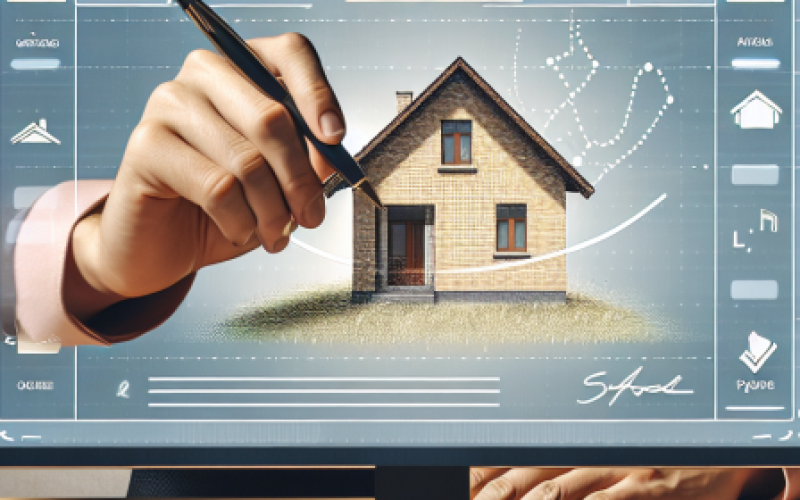

What Is Buyer’s Remorse? How to Avoid Regret After Buying a Home
You saved, planned, and finally signed all the paperwork. The keys are in your hand, and your new home is officially yours. But as the excitement fades, a strange feeling sneaks in. Instead of joy, you start to feel unsure. You wonder, "Did I make the right choice?" or "What if I rushed into this?"
Read MoreWhat Is Buyer’s Remorse? How to Avoid Regret After Buying a Home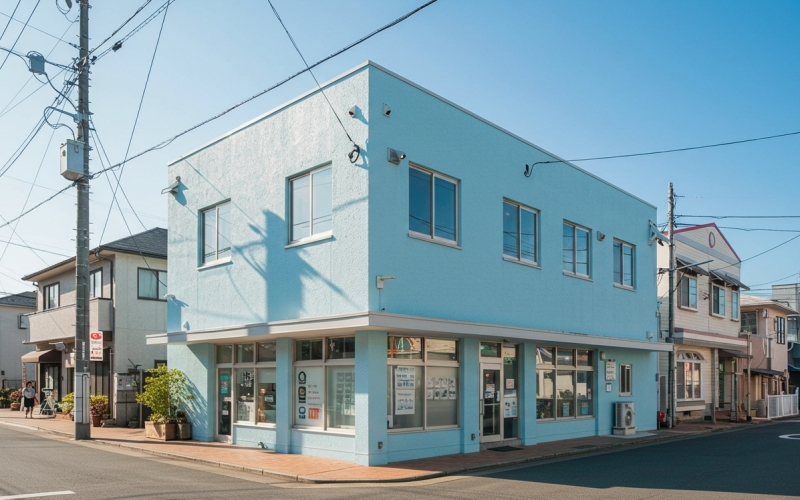
How to Find a Buyer for Commercial Real Estate
Finding the right buyer takes more than luck. It takes action. And the more prepared and involved you are, the faster your sale can happen—and the better your results will be.
Read MoreHow to Find a Buyer for Commercial Real Estate
The Best Real Estate Tools For Homebuyers
These days, you need to move faster because the faster you move, the more money you save. And the more organized you are, the less you make mistakes, and today, a mistake costs a lot!
Read MoreThe Best Real Estate Tools For Homebuyers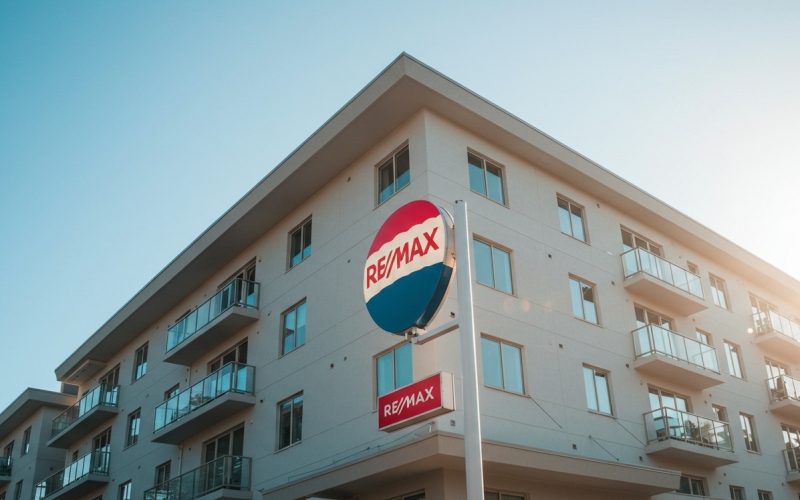
Real Estate Branding: How to Build a Powerful Identity That Sells!
Strong brands create feelings. Whether it’s confidence, comfort, or trust—your brand is how you make clients feel before and after every deal.
Read MoreReal Estate Branding: How to Build a Powerful Identity That Sells!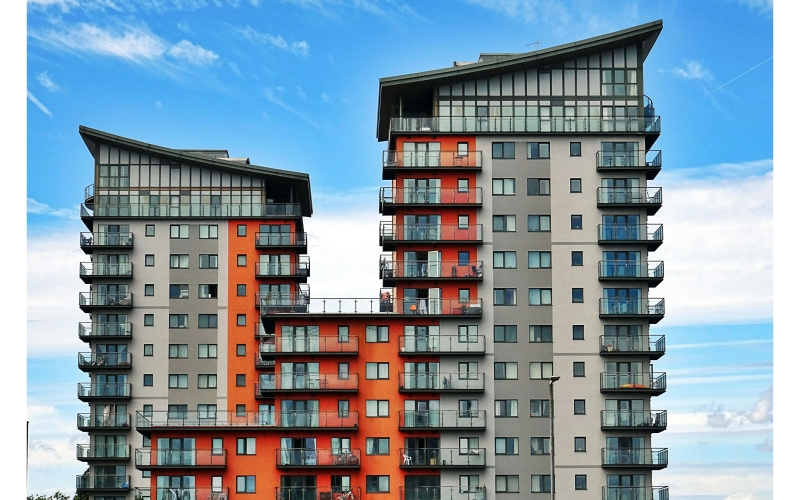
What Is A Rental Property?
A rental property is being rented by the owner of said property for the sole purpose of making a profit.
Read MoreWhat Is A Rental Property?
What Happens to U.S. Real Estate When War Breaks Out?
When war breaks out, real estate markets react fast—home prices may drop, demand slows, interest rates shift, and investors often become more cautious.
Read MoreWhat Happens to U.S. Real Estate When War Breaks Out?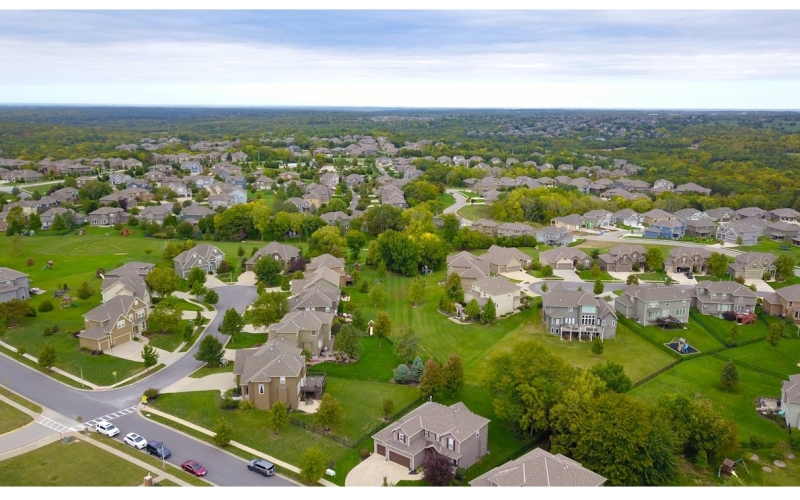
How to Start Investing in Real Estate Even If You're a Beginner!
Start investing in real estate by setting a budget, choosing a property type, getting financing, and working with a trusted agent or advisor.
Read MoreHow to Start Investing in Real Estate Even If You're a Beginner!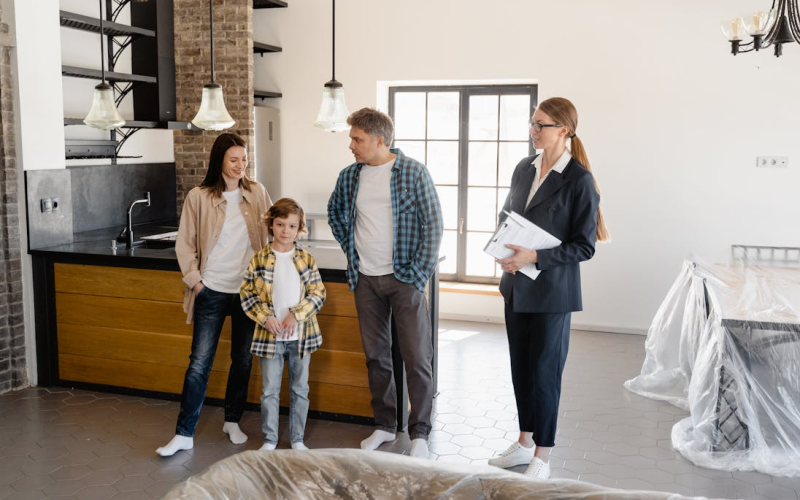
Listing Checklist Before Selling a House
Before listing your house, clean and declutter, make small repairs, and boost curb appeal. Gather key documents, set a fair price with your agent, and take quality photos. Keep the home clean and inviting for showings.
Read MoreListing Checklist Before Selling a House
Is It Cheaper to Build or Buy a House
Whether it's cheaper to buy or build a house depends on several factors like location, materials, and labor costs. In many areas, buying an existing home is often more affordable and faster than building one. However, building a home can give you more control over design and energy efficiency. It’s important to compare costs in your area and consider your budget, timeline, and preferences.
Read MoreIs It Cheaper to Build or Buy a House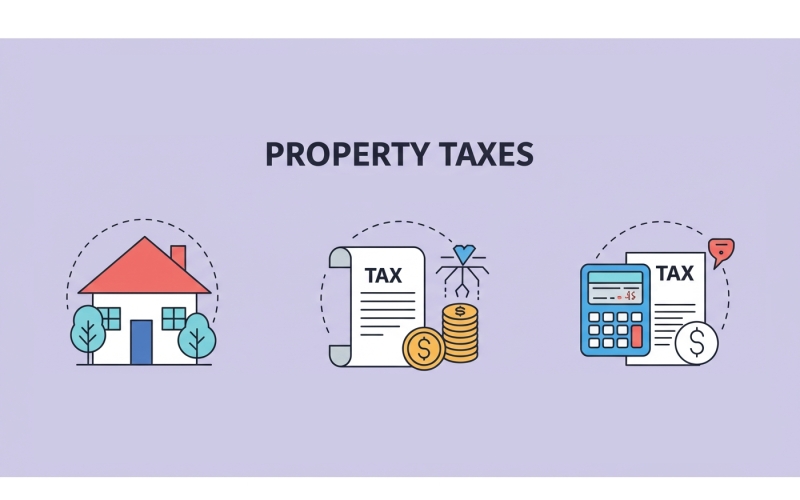
Iowa Property Taxes of 2025
Iowa's property taxes are higher than the national average and vary by county. They are based on the value of land and buildings and help fund local services like schools and public safety. Taxes are paid in two installments each year.
Read MoreIowa Property Taxes of 2025
Cheapest Places to Live in Iowa
Iowa has several affordable places to live, such as Keokuk, Oelwein, and Fort Dodge, known for low housing costs and overall affordability. Keokuk offers scenic views with homes under $90,000, while Oelwein and Fort Dodge provide affordable rent and low property taxes. Cities like Waterloo and Creston also offer budget-friendly options, making Iowa a great choice for those seeking an affordable lifestyle.
Read MoreCheapest Places to Live in Iowa

